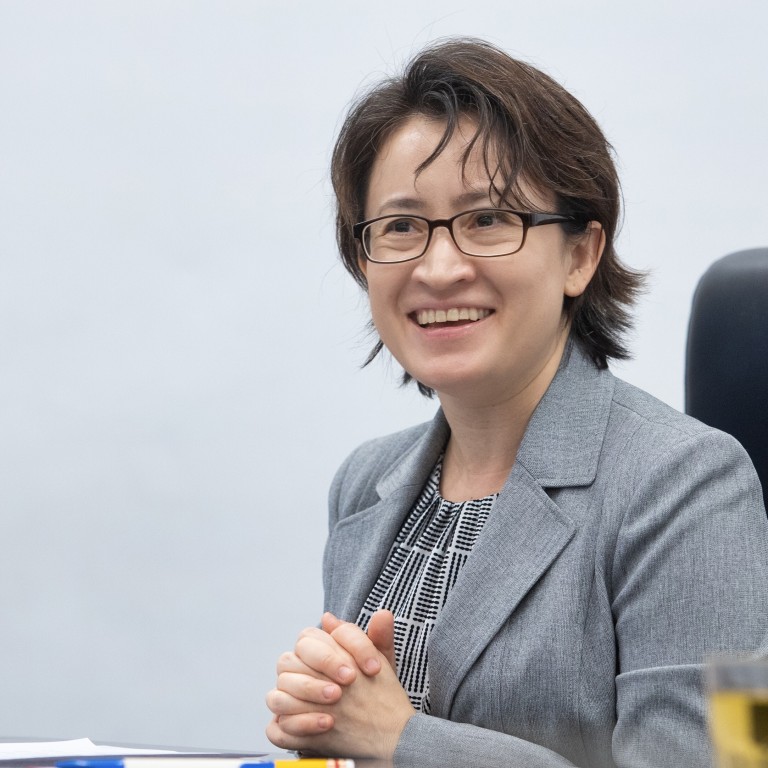
New Taiwan envoy to America sees potential risks and rewards in China-US rivalry over economy and tech
- Hsiao Bi-khim’s international upbringing and early political awareness have led to her being Taipei’s first female de facto ambassador to US
- Casting herself as an agile, flexible ‘cat warrior’, she says she will counter Beijing’s Wolf Warrior diplomacy and push for stronger ties with the US
In a heated session of Taiwan’s legislature the self-governed island’s new envoy to the United States was grilled by an opposition legislator.
“I want you to answer in English because I want to understand how you respond to the challenges and the questions that US friends and government officials raise to you,” the legislator said. “How [do] you envision Taiwan’s role in the US policy of rebalancing and pivoting towards Asia?”
“How do you respond to the question about concerns that greater cross-strait integration … has led to leakage of military technology, intelligence and other secrets from Taiwan to [mainland] China?” the legislator pressed on, in English.
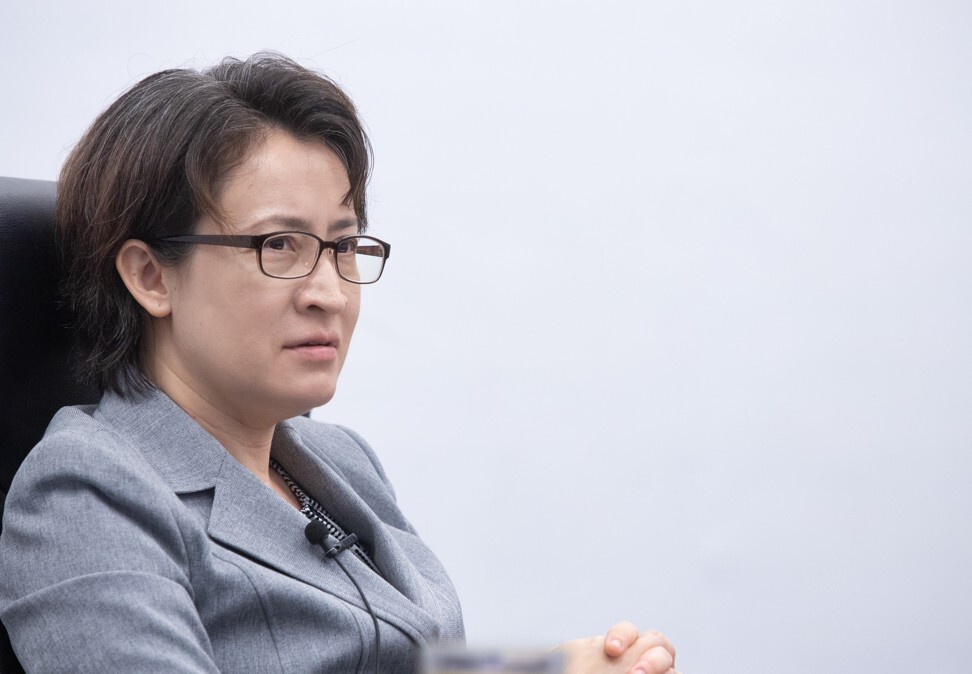
The American Institute in Taiwan, Washington’s de facto embassy to Taipei, said in a statement on Thursday that Hsiao had “a strong record of advancing US-Taiwan relations” and welcomed her appointment to this “critical role”. Taiwan-based United Daily News and Central News Agency reported that she was expected to set off to the US late this month.
Hsiao’s rare background is in stark contrast with that of her recent predecessors. She is half-American having grown up and educated there for a decade; a veteran in foreign affairs for over two decades but never a career diplomat; and a grass-roots politician who – like King – is a confidante of the president.
And Hsiao’s appointment comes at a time when US-China relations have nosedived and Taiwan’s role is ever more sensitive.
In a subsequent interview with the island’s Central News Agency released last week, Hsiao elaborated. She would push for wide-ranging cooperation between Taiwan and the US in national security, agriculture, trade, global supply chain restructuring and, in particular, make technology security a priority.
She said the competition between the US and China had shifted from geopolitics to technology and it was important for Taiwan to open more doors to strengthen tech cooperation with the US.
Hsiao said in the interview that as a manufacturing hub of information and communication technology products, Taiwan needed to ensure it was a “trustworthy partner” of the US and other like-minded countries to secure more cooperation.
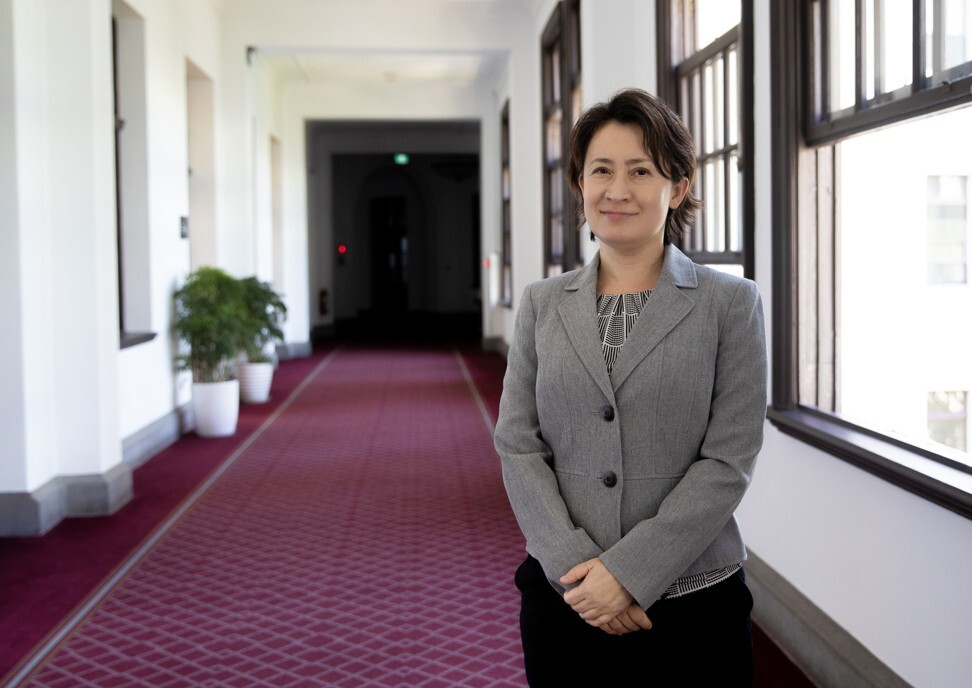
Hsiao said pushing for a bilateral free trade agreement with the US was of paramount importance, as it would help Taiwan foster trade ties with the US during its supply chain restructuring – and in turn cut the island’s heavy economic interdependence on the mainland.
Ryan Hass, a fellow with the Brookings Institution and an Obama administration national security official for China policy, wrote in February that “the more that US-China technology competition intensifies, the greater the risk of collateral damage to Taiwan”. He suggested Taipei might need to press Washington for a free-trade pact to offset some of the impact.
Zhu Songling, a professor with Beijing Union University’s Institute of Taiwan Studies, said that whether it was technology or trade, Taipei was caught between Beijing and Washington. Siding with the US risked further tension with mainland China.
“Taiwan would not be America’s ‘trustworthy partner’ but its pawn,” Zhu said.
He said the Trump administration, both out of consideration for securing the US hegemony and the president’s own re-election, would continue US hostility towards China, including playing the Taiwan card.
“There could be more Taiwan bills, invitations to Taiwanese political figures to visit Washington DC, new issues in US-Taiwan military cooperation or even collaboration on South China Sea disputes,” Zhu said.
Beijing sees Taiwan as part of its own territory after the two sides split at the end of the civil war in 1949. Washington switched its official ties from Taipei to Beijing in 1979 and pledged it would recognise the one-China policy.
As confrontation between China and the US escalates and spreads, Washington has made unprecedented policy changes, such as revoking its special treatment for Hong Kong because it sees the city as longer enjoying a high degree of autonomy from Beijing. Last week, the US also officially rejected China’s specific territorial claims in the disputed South China Sea.
The US Congress has already passed several Taiwan-related bills in the past two years that encourage a higher level of official contact, more arms sales and military exchanges. In addition, it has pledged its support for the island’s bids for greater access to international bodies.
“I expect to see Washington using the flexibility it has in dealing with Taiwan fully, but without fundamentally altering its approach,” said Shelley Rigger, a political-science professor at Davidson College in North Carolina.
“For the US to change the foundations would make it much more difficult to move past the current challenges with China, and would also invite retaliation against Taiwan. I don’t think even the Trump administration is prepared to take those risks,” she said, adding that seizing opportunities without getting pulled into a confrontation would be Hsiao’s biggest challenge.
Hsiao told the Central News Agency she would be “more innovative” in advancing “comprehensive” Taiwan-US ties, including promotion of Taiwan’s soft power in culture, sport and food.
“I will not confine myself in political relations and so-called traditional diplomacy. I will work for comprehensive Taiwan-US ties,” she said, adding that her grasp of president Tsai’s views was an asset in her new role.
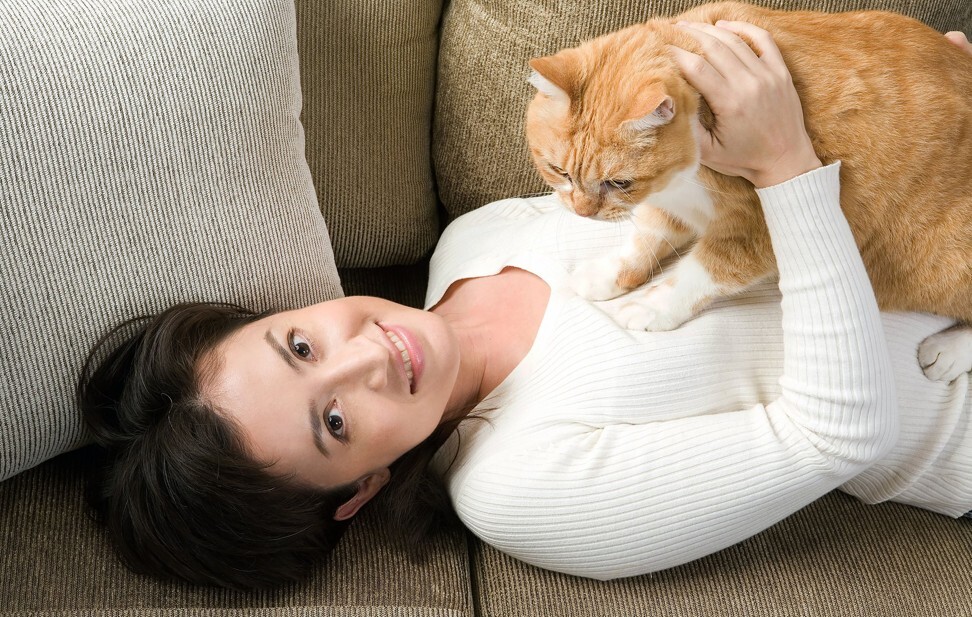
Sharing a common passion for cats with Tsai, Hsiao said she would counter Beijing’s “Wolf Warrior” diplomacy with her “cat warrior” approach, likening her own strengths to the feline agility and flexibility that allowed cats to find a way out of difficult situations.
But while she identified mainland China as the top risk factor in Taiwan-US relations, Hsiao described the Chinese ambassador to US, Cui Tiankai, as a seasoned diplomat and “respectable opponent”.
Zhu, of Beijing Union University, said that despite Hsiao’s deep understanding of US-Taiwan relations, so far she was yet to show exceptional capability or impressive achievement in this area, at least not from Beijing’s point of view.
“US-Taiwan relations, after all, depend on America’s China policy,” he said. “It makes no difference who takes up the Taiwan representative’s job.”
Rigger, however, said Hsiao’s background as a progressive activist and former legislator was very fresh and appealing, and that she was an “excellent choice” to shore up Taiwan’s relationship with Democratic forces in the US.
“In recent years, Republicans have showed particular enthusiasm for Taiwan, and some observers have worried that the defence of Taiwan might lose its bipartisan support,” she said.
“Hsiao is the ideal person to remind Americans on the left that Taiwan’s government is very much aligned with their values.”
Born to a Taiwanese father and an American mother in Kobe, Japan, in 1971, Hsiao spent most of her childhood in the southern Taiwanese city of Tainan. After finishing junior high school, she moved to New Jersey with her family and graduated from Columbia University with a master’s degree in political science in 1995.
In her memoir published in 2004, her father recalled how Hsiao showed her interest in political activism and leadership at high school, including volunteering to hand out pamphlets calling for public support of students in Beijing during the 1989 Tiananmen democracy movement.
But Hsiao also recounted her resentment towards mainland China’s suppression of Taiwan’s international space during her years at Columbia University. At a student dormitory “international festival” some mainland students asked to have any “Taiwan” stall banned, saying the island was part of China and did not have its own culture. Hsiao was the only Taiwanese student in the dormitory then and eventually gained support from other students to set up a Taiwan stall.
Hsiao started her connection with Taiwanese politics in 1991 when she was a junior at Oberlin College in Ohio in the US, spending a semester back in Taiwan to be an assistant to feminist Annette Lu of the Democratic Progressive Party. Lu would later become Taiwanese vice-president when the DPP won its historic presidential election in 2000.
After graduating from Columbia, Hsiao joined the DPP’s representative office in Washington and returned to Taiwan a year later. She became the party’s international affairs chief at the age of 26.
Hsiao also campaigned for Chen Shui-bian and Lu in their run for the island’s presidency, and became a presidential adviser to Chen in 2000 while continuing to play key roles in the party’s foreign affairs. She was often seen accompanying key DPP leaders on their US visits, including the most recent trip of then vice-president elect William Lai to Washington in February.
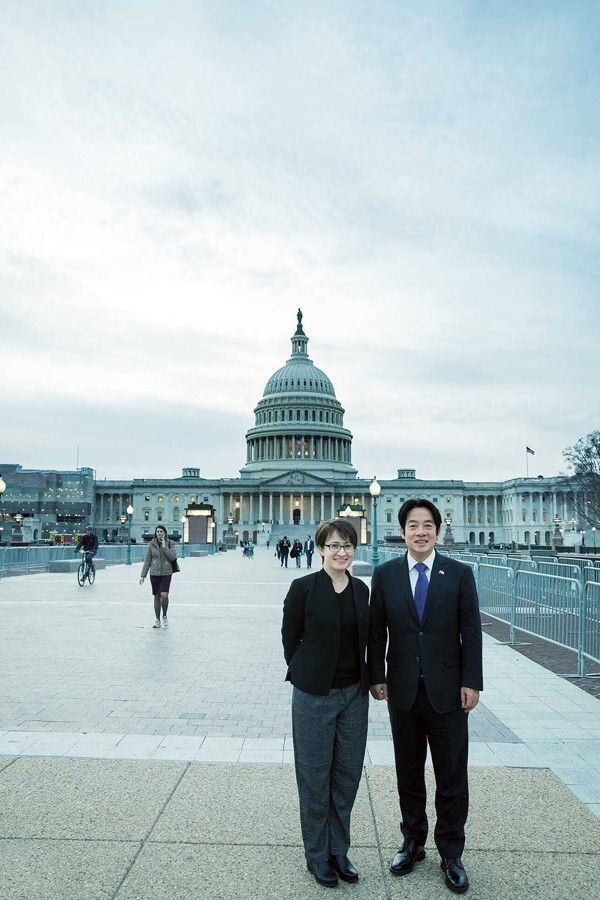
She joined the legislature’s foreign relations committee after she was first elected a legislator in 2001.
“She has been the go-to voice of the DPP for Americans and other foreigners for decades,” Rigger said.
Hsiao became more focused on grass-roots politics after she shifted to the eastern constituency of Hualien county in 2010 and re-entered the legislature in 2012.
After she lost her seat in the election in January, Tsai appointed her as an adviser to the National Security Council in April, paving the way for her to become the next envoy to the US.
Hsiao said she would bring along her four cats to Washington.

